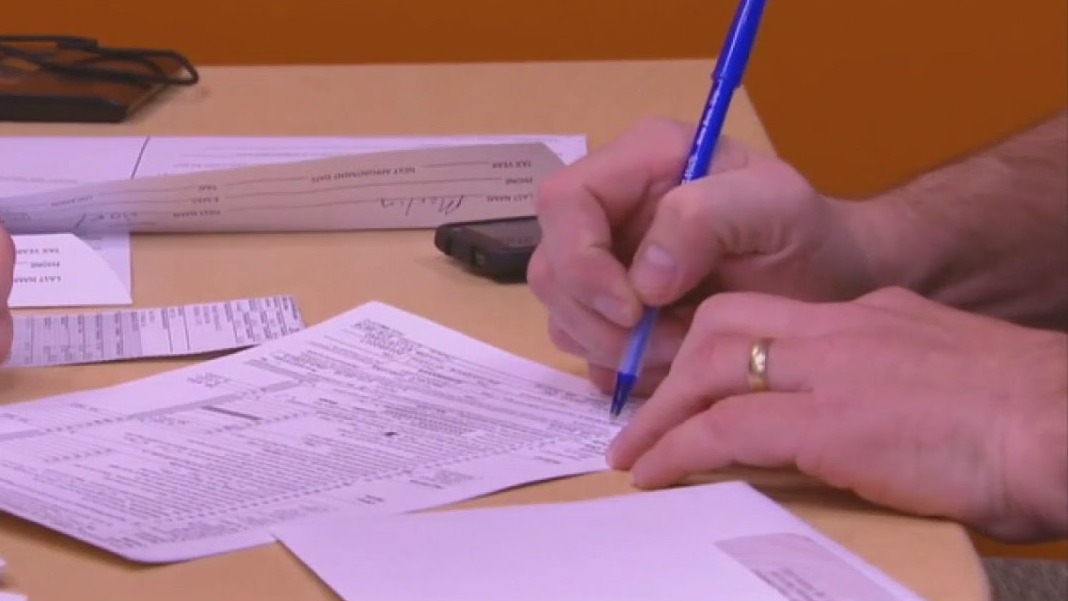Tax Scammers and AI: Are You at Risk?
Houston - Cybersecurity experts are warning that artificial intelligence could help scammers steal a lot more tax refunds this year. And IRS investigators say you need to take steps to protect yourself from all types of tax fraud.
IRS Criminal Investigators identified $5.5 billion dollars in tax fraud last year. However, some cybersecurity experts fear artificial intelligence could make the problem worse this year.
"You don’t even know someone is using your identity, you have no idea," said Haywood Talcove, CEO of LexisNexis Risk Solutions for Government.
LexisNexis showed us posts, which they say were gathered from the dark web by Georgia State University criminology director David Maimon, of fraudsters showing how they filed for tax refunds using stolen passports, IDs, and personal information.
"The problem is the ability to generate fake licenses is now at scale and the human eye is not used to this technology. One of the things taxpayers need to fear is someone getting into these tax systems that use this technology, and finding a target," explained Talcove.
Talcove warns that artificial intelligence can allow scammers to create photos and videos to try to fool identity verification systems.
"Once you’ve been validated, especially by those third-party-credentialed providers, you can get into the IRS, you can get into some private sector organizations, you can get into a lot of places," said Talcove.
Nicholas Rice with IRS Criminal Investigators warns that taxpayers need to watch out for fraudulent tax preparers promising a larger refund.
Cutting down mortgage payments; find out how
"There shouldn’t be a drastic swing in your refund if you’re a W-2 wage earner," said Rice.
He urges taxpayers to set up direct deposit to receive refunds. He cites the case of 38-year-old Benjamin Thomas of Richmond, TX, and 33-year-old Whitley Rachelle Carter of Houston, recently convicted of stealing a Houston couple's nearly $3 million dollar paper check tax refund out of the mail.

IRS tools to protect your tax refund
After flagging more than one million fraudulent tax returns last year, the IRS is urging you to take steps to protect yourself from identity theft.
"A $3 million Treasury check that was stolen and deposited into accounts that he had access to," said Rice.
"Mr. Thomas was arrested driving a stolen Lamborghini," he added.
The U.S. Treasury just announced it is also using artificial intelligence to fight back against identity theft and recovered $375 million last year using an enhanced fraud detection process.
The IRS tells us it also uses software called ID.me to verify identities.
We reached out to ID.me to find out how it is responding to scammers using artificial intelligence to create fake images.
They sent us the following statement:
"Safeguarding our identity verification process from scammers is a top priority at ID.me. In short, ID.me's verification technologies and oversight guidelines prevent scammers' fake images from going through. From a human capital perspective, ID.me employs some of the best engineers, data scientists, and fraud investigators to ensure a safe and fortified identity verification process. Together, these elements fuse to build and deliver privacy and security controls that protect people and institutions from being victimized. ID.me also works to stay at the forefront of emerging identity verification practices and technologies. ID.me leverages several approaches including supervised machine learning (ML) and artificial intelligence (AI) to identify fraud and synthetic identity theft.
"As an example of how ID.me combats fraud, states credit ID.me with successfully preventing hundreds of billions of dollars of fraud during the pandemic. California reported "stopping over $125 billion in attempted fraud by deploying a new identity verification system, ID.me."
Protect your tax refund from identity thieves: IRS tools, IP PIN

Watch out for tax scammers targeting you with phony links
As tax season begins, scammers are already on the prowl, using deceptive tactics such as bogus links, text messages, emails, and posing as IRS agents to steal money and identities
Here are tips from the IRS Criminal Investigators to protect yourself from tax fraud:
- File as early as possible
- Open your IRS account online so that a scammer can't open it for you.
- You can now get a PIN number, which acts as an additional password to protect your account.
- Use direct deposit to receive refunds.
- And the IRS will only contact you with a letter in the mail.
- Do not give out personal information to any calls, texts or emails saying they're with the IRS.


